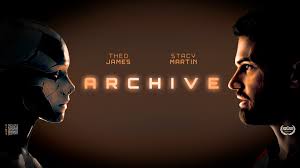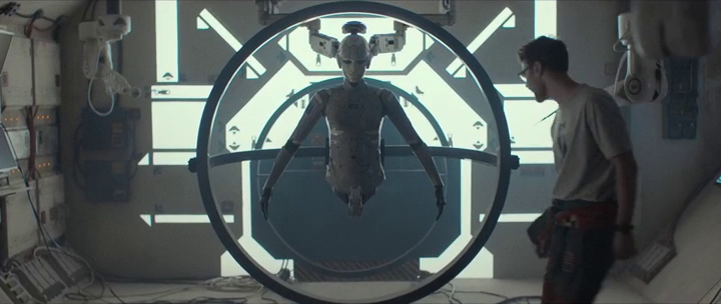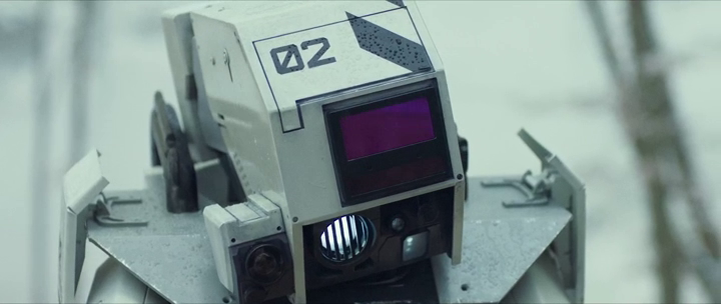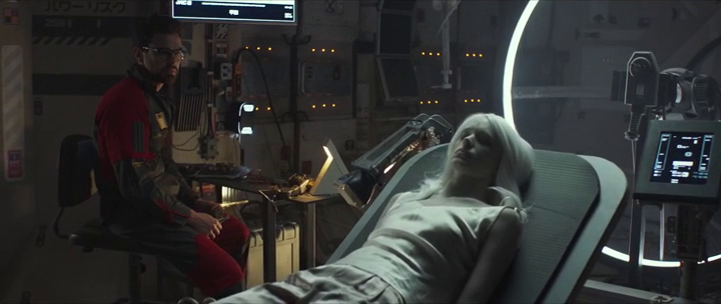If I learned anything from watching countless science fiction movies it’s that you shouldn’t mess with artificial intelligence and bringing back your dead wife is never a good idea. In this movie not only does the protagonist of writer/director Gavin Rothery sci-fi thriller Archive attempt both of those things but he also breaks the cardinal rule of "Don't get into bed with an evil corporation." That’s just common sense, folks.
The plot of Archive looks like your standard entry in the “mad scientist” genre with robotic expert George Almore (Theo James) being hired by a shady corporation called ARM – we never learn what this acronym means but I’m sure the “M” stands for malevolent – to fix an old decommissioned facility deep in the Japanese mountains, but when running around fixing security systems good ole George is also building several prototype robots that he hopes will eventually house the consciousness of his recently departed wife.
It’s also possible he's just a huge fan of HBO’s Westworld.
Throughout the film, George is harassed by his corporate boss Simone (Rhona Mitra ), who isn’t happy with his progress and is quite sure that he's hiding something from her, and then we have Vincent Sinclair (Toby Jones) from Archive, a company that provides the living with the ability to talk to the dead for a few more hours via a monolithic looking casket that stores an analog version of their consciousness. But why does this system only allow for a limited amount of minutes before degradation? Well, that’s just one of many science-fiction elements that Rothery isn’t all that interested in explaining because this film is more about obsession and betrayal than it is about its sci-fi trappings. The key problem I had with Archive was not in its loose approach to science but rather in its unlikeable protagonist. Sure, one should sympathize with George because of the tragic loss of his wife – a terrible car crash we see through various flashbacks – but his very goal of bringing back his wife goes against her dying wishes. Then we have the whole issue of him being a complete dick to the earlier robot prototypes once he gets the new sexier model online.
This is the real hero of the movie and we needed more of her.
There are two robots working alongside George, with the first one having the intelligence of a toddler while the second one that of a petulant teenager, but with time running out on resurrecting his wife Jules (Stacy Martin) George not only ignores his earlier creations but even cannibalized one of them to speed up the process on the latest model. It’s the second prototype, called J2, who is the true heart of this film and her jealousy of this new “sister” is warranted, no matter how many times George tries to dismiss it, and it’s through this sweet robot's journey that I really began to dislike George. I would have been much happier if the film ended more like Alex Garland’s Ex Machina with J2 escaping into the real world, sadly, that is not the story Gavin Rothery was trying to tell, instead, what we get is a film that owes a lot to Blade Runner, with the look of the film being very much influenced by designer Syd Meade and the seemingly corporate-run world is right out of Philip K Dick’s book, but without a protagonist like Rick Deckard it falls rather short.
“Do androids dream of copyright infringement?”
It’s in the third act when things truly get interesting but as I want to avoid getting into spoiler territory I’ll just say that I don’t think this film quite earned the last-minute change the plot makes. Now, I’ll admit the film’s conclusion is thought-provoking but it also raises more questions than it answers, which, is not necessarily are a bad thing, but for it to completely work it would have needed a stronger protagonist, one I actually cared about. That all said, the film is gorgeous and Gavin Rothery’s history as a graphic artist is put to great use and I look forward to seeing further projects from him, but maybe he could leave the writing to someone else.




No comments:
Post a Comment